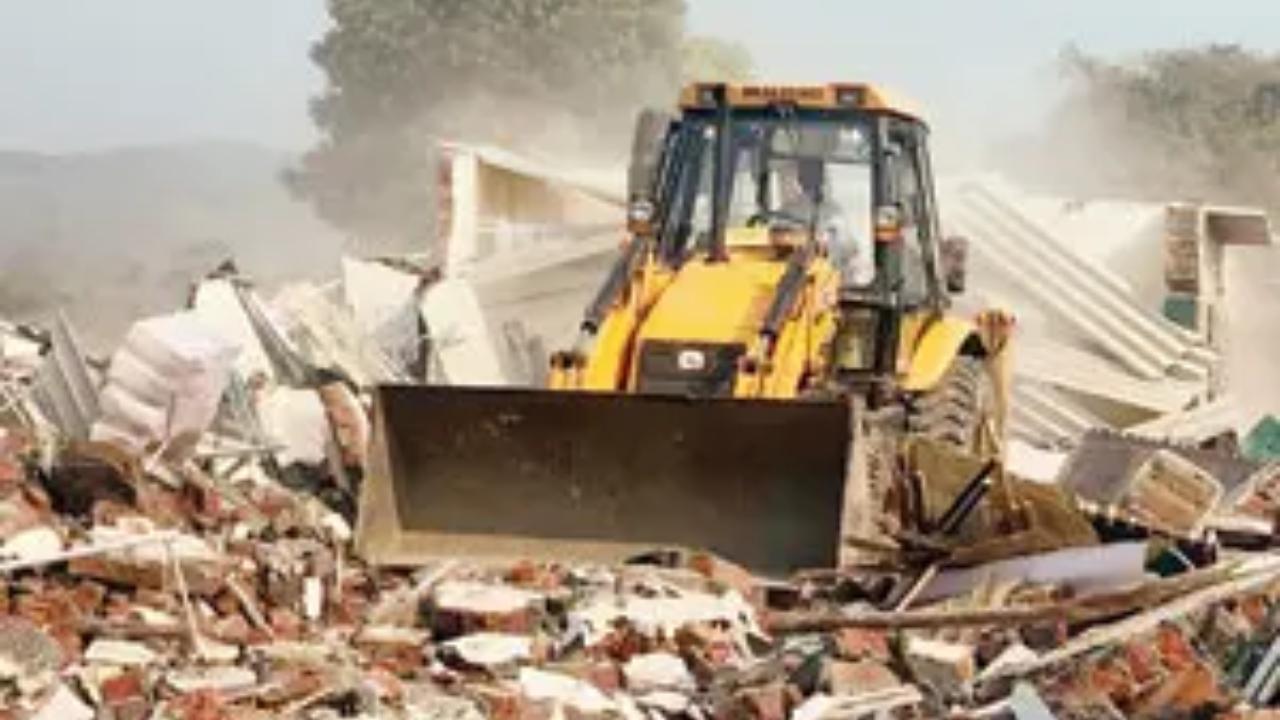Brihanmumbai Municipal Corporation (BMC) has sparked widespread public protest and administrative friction, with over 370 objections filed by residents under the draft 2025 Solid Waste Management bylaws and new scrutiny emerging over civic accountability.
The incident, which unfolded on April 16 under the jurisdiction of the K/East ward office, has not only drawn criticism from the affected religious community but also prompted internal dissent from the civic body’s engineering staff. According to officials within the community group overseeing the temple, the structure has existed since before 1962 and was regularised by a civic resolution passed over a decade ago. Community members met with senior BMC authorities demanding that the demolished portions be reconstructed by the administration, citing legal grounds and historical precedence.
“The structure is part of the city’s survey records, and its demolition has resulted in irreversible damage to religious artefacts,” said one temple trustee, speaking on behalf of the community. Devotees have reportedly lost jewellery, prayer vessels, scriptures and idols during the demolition drive. The group plans to escalate the matter to the state’s Minority Commission, asserting their demand for restorative action under existing statutory frameworks. The conflict deepened when a senior official from the Mumbai Municipal Engineers’ Union (MMEU) addressed a letter to the municipal commissioner, questioning the decision to abruptly transfer the assistant municipal commissioner under whose watch the demolition was conducted. The union alleges that the transfer appears to have been made under political pressure, bypassing due administrative procedure and undermining the morale of civic engineering staff.
“Sudden punitive actions without proper inquiry undermine professional integrity and hinder genuine efforts to enforce municipal regulations,” the union stated in its letter. It also expressed concern that such decisions could discourage field-level officers from taking bold actions against unauthorised developments in future. The demolition followed civic identification of the structure as illegal, although the temple trustees maintain that the 2013 legal opinion issued by the BMC’s own law department protects pre-1962 structures under the Maharashtra Regional Town Planning (MRTP) Act. The law provides that structures existing prior to the cut-off year cannot be subjected to demolition actions unless clearly proven otherwise.
The issue has taken on political dimensions as well, with representatives across party lines reportedly criticising the demolition and the hasty transfer of the local assistant commissioner. While the civic body has not issued an official statement on the matter, a senior deputy commissioner confirmed that the issue is under active review. Urban planning experts have highlighted the broader implications of such incidents, which raise concerns around equitable urban development, religious freedoms, and lawful enforcement. “As Indian cities move toward sustainable and inclusive frameworks, civic actions must remain transparent and sensitive to socio-religious dynamics,” said a governance analyst. “It is not only about enforcing building codes but also about building trust in public institutions.”
The incident also places renewed emphasis on the need for clearer and consistent implementation of bylaws, especially as the BMC opens the floor for public consultation on its updated Solid Waste Management regulations. Over 370 suggestions and objections were received on the new draft, showing a high level of public engagement and concern over civic processes. This controversy underscores the complex terrain civic agencies must navigate when dealing with urban heritage, informal developments and community sentiments—especially in a densely populated metropolis like Mumbai. It also brings into focus the importance of sustainable, inclusive decision-making practices that prioritise not just legality but also fairness and social cohesion.
As the BMC prepares to respond to the public submissions on its new waste management policy, the outcome of the Vile Parle case may well shape public trust in how the civic body balances law enforcement with sensitivity in future urban interventions.
Also Read : https://urbanacres.in/bmc-pulls-up-2-road-contractors-with-20l-fines/


